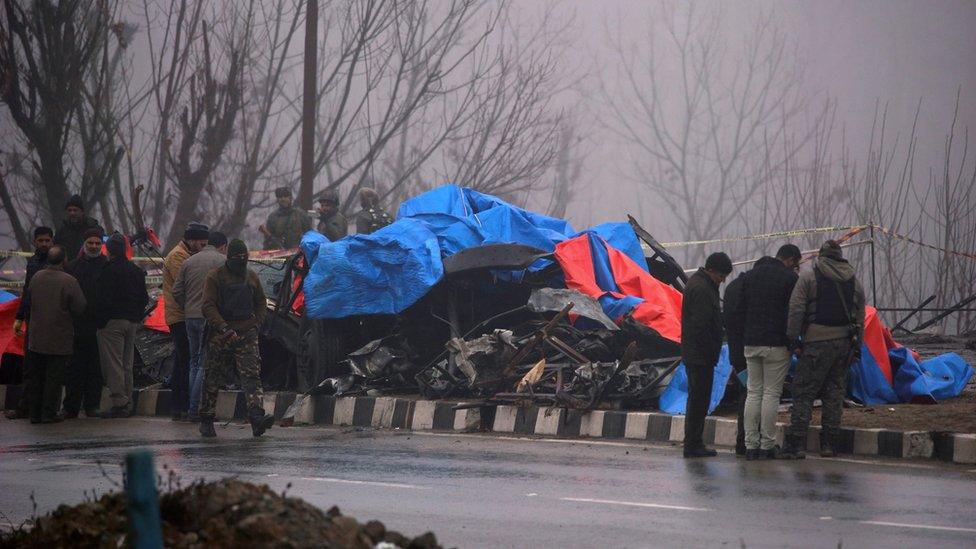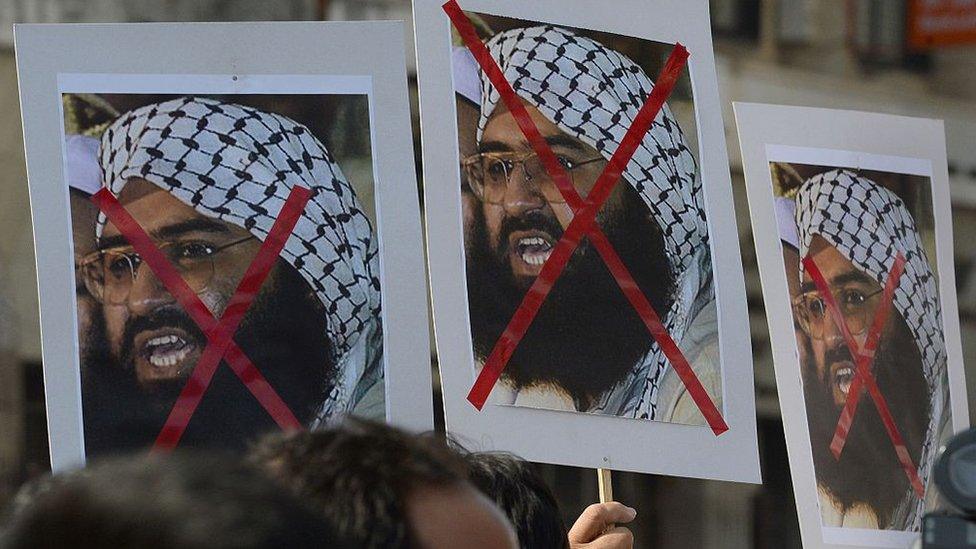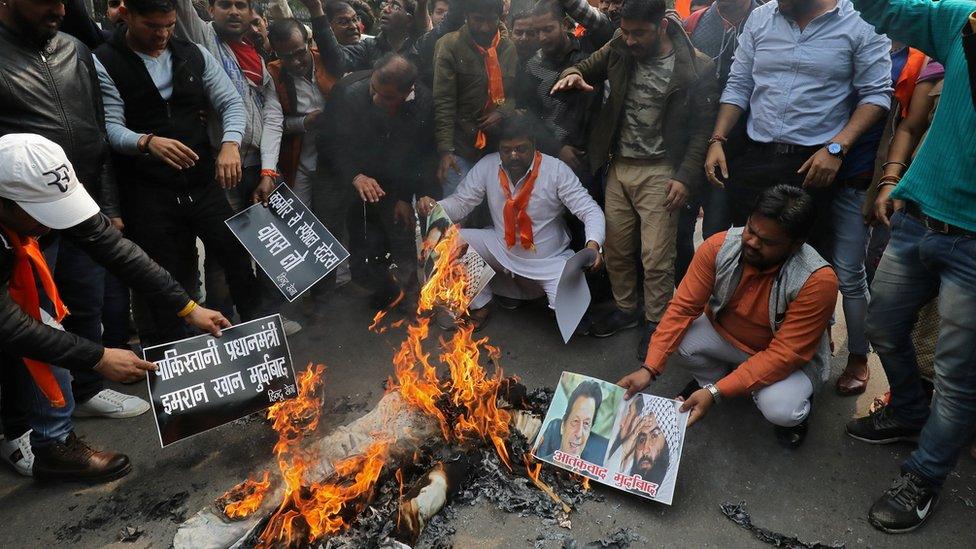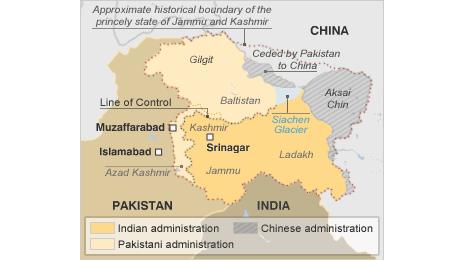Pulwama attack: What is militant group Jaish-e-Mohammad?
- Published

It was the single deadliest attack in Indian-controlled Kashmir since 1989
Jaish-e-Mohammad (JeM), a Pakistan-based group, has claimed responsibility for the suicide bombing on 14 February in Indian-administered Kashmir.
The group is designated a terror organisation by India and the UN, as well as the UK and the US.
It aims to unite Kashmir with Pakistan and has been held responsible for attacks in India and Kashmir.
Media reports say JeM spokesman Muhammad Hassan spoke of "dozens of [Indian] forces' vehicles" destroyed in the attack, when the bomber rammed a convoy in a vehicle filled with explosives.
What is JeM?
Jaish-e-Mohammad literally means the Army of Mohammad.
Pakistan-based Muslim cleric Masood Azhar founded the group after he was released by India in 1999.
He was one of three men set free in exchange for the crew and passengers of an Indian Airlines plane hijacked and flown to Taliban-ruled Afghanistan.

Maulana Masood Azhar founded JeM in 1999
Mr Azhar reportedly met with the former Taliban leader Mullah Omar and with al-Qaeda head Osama Bin Laden when he was in the country.
India blame JeM for an attack on their parliament in New Delhi in December 2001 - a claim JeM denies.
JeM was officially banned in Pakistan soon after that attack but the group still operates, sometimes using the names Afzal Guru Squad, Al-Murabitoon and Tehreek-al-Furqan.
More recently, India has blamed JeM for an attack on its Pathankot airbase near the Pakistani border in January 2016, which left three security forces dead.
JeM commander Noor Mohammad Tantray was killed by Indian forces in December 2017, which was seen as a massive blow to the organisation.
But the violence did not abate, and a report in the Indian newspaper The Print suggests covert Pakistani support may be the reason for its expansion.
JeM has however attacked Pakistani military targets and even made an attempt on former leader Pervez Musharraf's life in 2003, despite India's accusations that Pakistan harbours the group.
What have India and Pakistan said?
India frequently asks its neighbour to extradite Masood Azhar - reportedly in the eastern Pakistani province of Punjab - but Pakistan refuses, saying there is a lack of proof against him.

Right wing Hindus burn photos of Mr Azhar and Pakistani Prime Minister Imran Khan
New Delhi has also called on the UN to list Masood Azhar as a global terrorist, but Pakistan's close ally China continues to block the move.
Speaking after the Pulwama attack, India's foreign ministry demanded that Pakistan "stop supporting terrorists and terror groups operating from their territory, and dismantle the infrastructure operated by terrorist outfits to launch attacks in other countries".
But Pakistan has condemned any suggestion it is linked to the attack.
"We have always condemned acts of violence anywhere in the world," a foreign office spokesman said.
Additional reporting by BBC Monitoring
- Published26 April 2017
- Published1 March 2016
